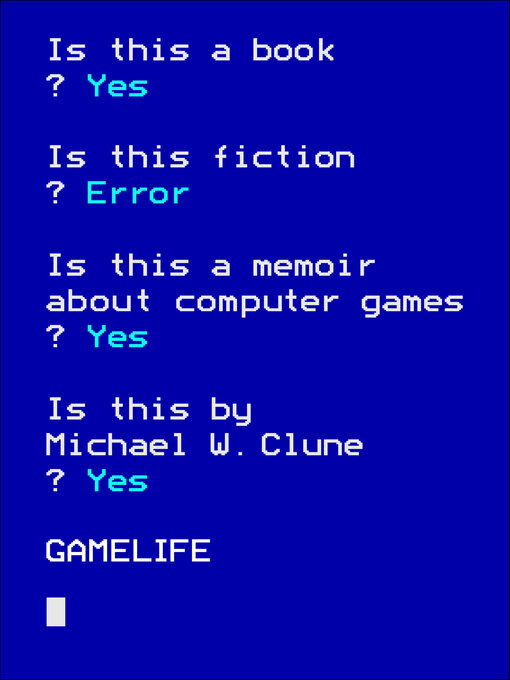In telling the story of his youth through seven computer games, critically acclaimed author Michael W. Clune (White Out) captures the part of childhood we live alone.
You have been awakened.
Floppy disk inserted, computer turned on, a whirring, and then this sentence, followed by a blinking cursor. So begins Suspended, the first computer game to obsess seven-year-old Michael, to worm into his head and change his sense of reality. Thirty years later he will write: "Computer games have taught me the things you can't learn from people."
Gamelife is the memoir of a childhood transformed by technology. Afternoons spent gazing at pixelated maps and mazes train Michael's eyes for the uncanny side of 1980s suburban Illinois. A game about pirates yields clues to the drama of cafeteria politics and locker-room hazing. And in the year of his parents' divorce, a spaceflight simulator opens a hole in reality.
- Available now
- Sleuth Out a New Mystery Series
- Most popular
- Found at Airport Bookstores
- Not Such a Happy Home: Domestic thrillers & haunted homes
- Try something different
- Perpetually Popular Nonfiction
- Quirky and Heartfelt Reads
- Read Banned Books!
- See all ebooks collections
- Audiobooks for the Drive to Las Vegas
- Audiobooks for the Drive to Palm Springs
- Audiobooks for the Drive to San Francisco
- Available now
- Audiobooks for the Whole Family
- Most Popular Audio Between 1 and 3 Hours
- New audiobook additions
- Listen While You Run: Audiobooks for Workouts
- Try something different
- Most popular
- See all audiobooks collections



